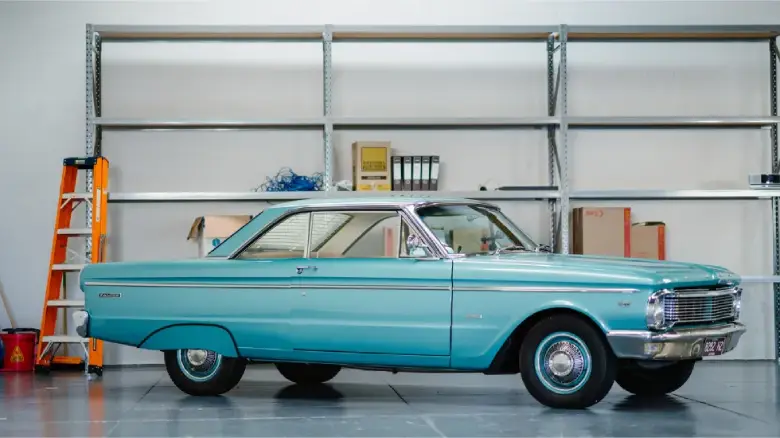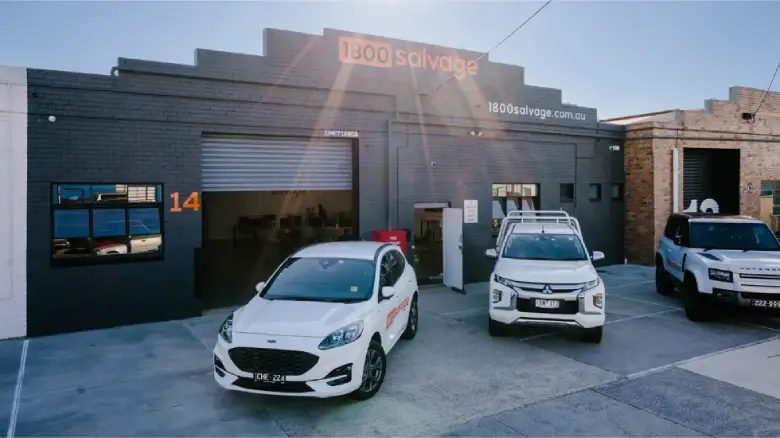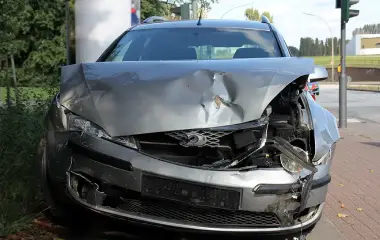Selling an unregistered car in the ACT is legal, but there are specific rules you must follow to avoid fines and penalties. An unregistered vehicle is one where the registration has expired or been cancelled, meaning it can’t be legally driven on public roads.
This guide explains the legal requirements for selling an unregistered car, how to prepare your vehicle, and the easiest ways to transport and dispose of it.
The most hassle-free way to sell unregistered vehicles
Selling an unregistered car in Canberra can feel complicated, but the process is straightforward once you understand the rules. However, if you want an easier experience, you can just sell your vehicle to buyers like us.
At 1800 Salvage, we buy unwanted cars across Canberra with same-day removal services and instant cash payments. A lot of unregistered cars come through our yards, so we can offer a few tips and tricks to help you sell your unregistered vehicle quickly.
What is an unregistered vehicle in Canberra?
In Canberra, a vehicle is considered unregistered if it does not have a current registration certificate issued by Access Canberra. This means it can’t be used for driving and is also not covered by compulsory third-party (CTP) insurance.
Driving or allowing someone else to drive an unregistered car in Canberra is illegal and can result in heavy fines or penalties. However, you can still sell an unregistered car in Canberra if you are upfront about its status and complete the required documentation.
Why do cars become unregistered in Canberra?
There are several reasons why a car in Canberra may lose its registration.
Lapse of registration
One of the most common reasons a vehicle becomes unregistered is that the registration has expired and not been renewed. This might be due to oversight or a deliberate decision if the vehicle is no longer in use.
Failure to pass inspection
In the ACT, vehicles must meet certain safety and emissions standards to be registered. If a vehicle fails to pass these inspections, it cannot be registered until all necessary repairs and modifications are made to bring it up to standard with a roadworthy certificate.
Interruption of insurance coverage
Continuous compulsory third-party insurance (CTP) is a requirement for vehicle registration in the ACT. If insurance coverage lapses or is cancelled, the vehicle’s registration is suspended until reinstated.
What are the legal requirements for selling an unregistered car in Canberra?
You can legally sell an unregistered car in Canberra, but there are clear requirements you must follow. Sellers are obligated to disclose the vehicle’s unregistered status upfront so buyers understand it cannot be legally driven until it is registered again.
You must also provide accurate documentation about the vehicle, including its history and condition, and disclose any known faults. Under Canberra consumer protection laws, misrepresenting the car or suggesting it can be driven on public roads without registration can result in fines and penalties.
By being transparent about the car’s status and ensuring the correct paperwork is supplied, you can legally and responsibly sell an unregistered vehicle in Canberra.

How do you prepare an unregistered car for sale in Canberra?
Before you can sell an unregistered car in Canberra, it’s important to have the right documents and information ready for potential buyers. This helps build trust and ensures the sale goes smoothly.
Proof of ownership
The most critical document is proof of ownership, typically the vehicle's title or registration papers, which show that you legally own the car. Even if the registration has expired, these documents are crucial.
Vehicle history report
A comprehensive vehicle history report can significantly enhance the credibility of your sale. This report should include the vehicle’s details, including accidents, previous owners, service history, and major repairs. It helps the buyer understand exactly what they are purchasing and can mitigate any concerns over the car's history.
Pre-sale vehicle inspection
While not mandatory, offering a pre-sale vehicle inspection can significantly aid in selling an unregistered car. A pre-sale inspection reassures potential buyers about the condition of the car. It highlights any existing issues and verifies that the vehicle is in the state as advertised, making it a more appealing purchase.
How do you transport an unregistered car in Canberra?
If you need to move an unregistered car in Canberra, you cannot legally drive it on public roads without permission. Instead, you have two main options:
One option is to apply for an unregistered vehicle permit through Access Canberra. This short-term permit allows you to drive or relocate the car for specific purposes, such as selling it or taking it to a mechanic for repairs.
The other option is to use a towing service or tow truck. Hiring a professional towing company is often the safest and most convenient choice, especially if the car is damaged, unroadworthy, or unregistered for a long time.
Both methods ensure your vehicle is moved legally, without risking fines or penalties for driving without registration.
How to set a fair price for an unregistered car in Canberra
Pricing an unregistered car in Canberra requires a realistic approach. Because the vehicle cannot be legally driven until it is registered again, buyers often factor in the extra cost and effort needed for inspections, repairs, and paperwork.
- Research Comparable Sales: Look at the prices of similar unregistered makes and models. Online marketplaces, local classified ads, and dealer listings can provide a good baseline for your car’s potential market price.
- Consider the Car’s Limitations: Being unregistered, the car cannot be driven legally until registered, which can be a significant deterrent for many buyers. This should be reflected in the pricing as a concession for the extra steps and expenses the buyer will need to undertake.
- Adjust for Condition and Extras: Recent upgrades, such as new tyres or a high-end audio system, can add to your car's value. Conversely, any issues like a history of breakdowns or cosmetic damage should be factored into a lower price.
- Get a Professional Appraisal: If you're unsure, consider getting a professional valuation from a certified appraiser. They can provide an objective assessment that could assist in setting a competitive yet fair price.
Who buys unregistered cars in Canberra?
If you’re looking to get cash for cars in Canberra, there are a few different options to consider. Each comes with its own advantages depending on whether you want the best price, a quick sale, or the least hassle.
Private sale
Selling privately often delivers the highest return, but it can take time. You’ll need to be transparent that the car is unregistered and provide proof of ownership and other documents. Private buyers may be hesitant since they will need to pay for inspections and registration before the car can be driven.
Dealers and salvage yards
Dealers and salvage yards like 1800 Salvage are viable options for those looking for a quicker, hassle-free sale with instant cash in hand. This option is usually the fastest and most convenient because we handle the paperwork, arrange towing, and pay cash on the spot.
Auctions
Selling through an auction can expose your vehicle to a larger audience. While this increases your chances of a quick sale, the final price depends on demand and competition on the day.

Finalising the sale
Once you've found a buyer for your unregistered car, finalising the sale involves several key steps to ensure everything is legal and secure.
Legal paperwork and transfer forms
Notification of Sale: In the ACT, you must notify Access Canberra of the vehicle sale. This is done through the 'Notice of Disposal' form, which should be submitted immediately after the sale. It helps update the vehicle registration records and absolves you from liabilities associated with the vehicle post-sale.
Receipt and Proof of Sale: Provide the buyer with a receipt of the sale. This should include the date, sale price, vehicle make and model, VIN (Vehicle Identification Number), registration number, and details for both the buyer and seller. It’s a good practice to make two copies, one for you and one for the buyer.
Transfer Forms: The buyer will eventually need to get the car registered again. Providing any relevant transfer forms and paperwork can facilitate this process for the buyer. Be sure to also inform the buyer of any remaining registration.
Selling with 1800 Salvage
Selling an unregistered car in Canberra can be seamless and successful if you diligently follow legal guidelines and prepare your vehicle correctly. For further assistance or a hassle-free selling experience, consider contacting us to sell your vehicle quickly and easily.



.jpeg)

.jpeg)

.webp)
